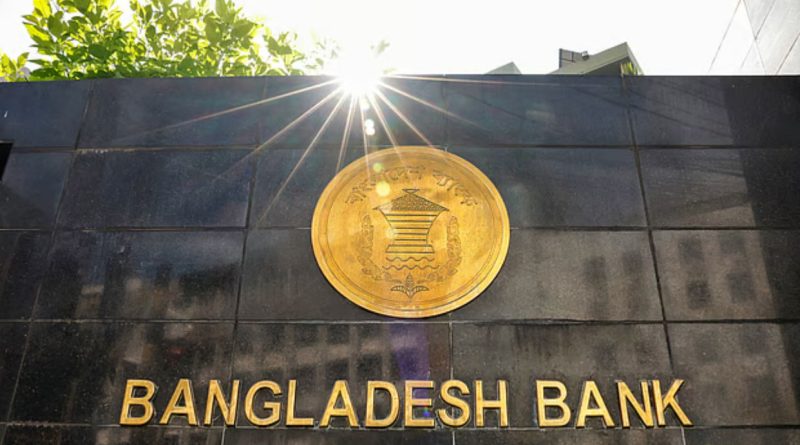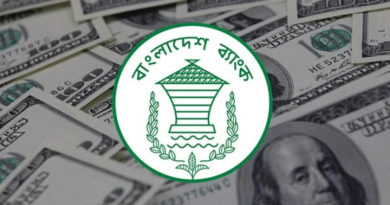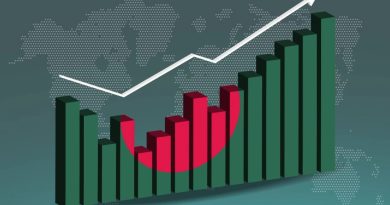Formal credit demand from the private sector hit a historical low of 6.29 per cent in September last, signaling a deep slowdown in the country’s business activities.
The decline is attributed to banks becoming more cautious amid higher NPLs (non-performing loans) buildups and private borrowers losing their credit appetite because of multiple anti-business factors like energy crisis, lawlessness, higher lending costs, exchange rate shocks and possible political chaos in the lead-up to the country’s general election next year.
Bangladesh Bank’s (BB) private sector credit growth-related data available since 2003, shows that credit growth has never fallen to this low even during earlier financial shocks.
According to the BB data, the outstanding of the loans taken by private sector entrepreneurs reached at Tk 17.56 trillion by end of September in 2025, which is up by 6.29 per cent from Tk 16.52 trillion recorded a year ago.
In fact, the private sector credit growth has been hovering in single digit since August last year, indicating a prolong sluggishness in the $460 billion economy led by the private sector.
Seeking anonymity, a BB official said the central bank as part of its inflation-tackling move continues contractionary monetary policy stance (MPS) with allowing policy rate at 10 per cent despite criticism from the business circles.
Apart from higher lending rate, the official said, there are some other factors like energy crisis, lack of enough security in the industrial hubs and possible poll-related violence probably prompted the entrepreneurs not to go for business expansion in this moment.
“These are perhaps major reasons behind the plummeting credit demand from the private sector,” the BB official said.
The central banker also informed that the projection for private sector credit growth in the half-yearly MPS upto coming December is 7.20 per cent and the current growth rate stays below the projection. But the growth might rise in the second half of this FY’26 as import orders show some sorts of increase in recent months.
President of Bangladesh Chamber of Industries Anwar-ul Alam Chowdhury said the industrial units have been struggling to operate their production for the last several months because of the energy crisis, lack of enough security.
Simultaneously, the business leader said, the latest foreign exchange shock in the form of massively devaluating the local currency against the US dollar, which severely hampered the business.
On the other hand, he said, the increased lending rate put last neil to the coffin. “Under such circumstances, who will go for business expansion?. In fact, running existing business is extremely difficult for the entrepreneurs.”
Managing Director and Chief Executive Officer of Mutual Trust Bank Limited Syed Mahbubur Rahman told the FE that the credit demand by the private sector continues dropping in recent months because of prevailing economic slowdown.
At the same time, he said, the banks are careful in releasing funds amid the ongoing liquidity stress in the later part of calendar year as they need to maintain a good balance sheet.
“This might contribute to the fall,” he added.
Economists observe the decline as a negative sign to the economy, as it could dampen investment, growth and job generation.
Chairman of local think-tank Policy Exchange of Bangladesh Dr M. Masrur Reaz said the investment growth is slow both in existing business and expansion.
He noted that the industrial units could not go for full production because of multiple factors like energy crisis, exchange rate risks and higher lending rate regime. So, the affected industrialists might not show the courage to take credit from the banks under the current circumstances.
jubairfe1980@gmail.com
country’s business activities.
The decline is attributed to banks becoming more cautious amid higher NPLs (non-performing loans) buildups and private borrowers losing their credit appetite because of multiple anti-business factors like energy crisis, lawlessness, higher lending costs, exchange rate shocks and possible political chaos in the lead-up to the country’s general election next year.
Bangladesh Bank’s (BB) private sector credit growth-related data available since 2003, shows that credit growth has never fallen to this low even during earlier financial shocks.
According to the BB data, the outstanding of the loans taken by private sector entrepreneurs reached at Tk 17.56 trillion by end of September in 2025, which is up by 6.29 per cent from Tk 16.52 trillion recorded a year ago.
In fact, the private sector credit growth has been hovering in single digit since August last year, indicating a prolong sluggishness in the $460 billion economy led by the private sector.
Seeking anonymity, a BB official said the central bank as part of its inflation-tackling move continues contractionary monetary policy stance (MPS) with allowing policy rate at 10 per cent despite criticism from the business circles.
Apart from higher lending rate, the official said, there are some other factors like energy crisis, lack of enough security in the industrial hubs and possible poll-related violence probably prompted the entrepreneurs not to go for business expansion in this moment.
“These are perhaps major reasons behind the plummeting credit demand from the private sector,” the BB official said.
The central banker also informed that the projection for private sector credit growth in the half-yearly MPS upto coming December is 7.20 per cent and the current growth rate stays below the projection. But the growth might rise in the second half of this FY’26 as import orders show some sorts of increase in recent months.
President of Bangladesh Chamber of Industries Anwar-ul Alam Chowdhury said the industrial units have been struggling to operate their production for the last several months because of the energy crisis, lack of enough security.
Simultaneously, the business leader said, the latest foreign exchange shock in the form of massively devaluating the local currency against the US dollar, which severely hampered the business.
On the other hand, he said, the increased lending rate put last neil to the coffin. “Under such circumstances, who will go for business expansion?. In fact, running existing business is extremely difficult for the entrepreneurs.”
Managing Director and Chief Executive Officer of Mutual Trust Bank Limited Syed Mahbubur Rahman said the credit demand by the private sector continues dropping in recent months because of prevailing economic slowdown.
At the same time, he said, the banks are careful in releasing funds amid the ongoing liquidity stress in the later part of calendar year as they need to maintain a good balance sheet.
“This might contribute to the fall,” he added.






